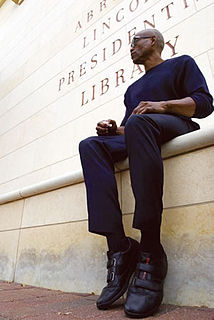A Quote by Jimmy Hoffa
To the best of my recollection, I must recall on my memory, I cannot remember
Related Quotes
You can't remember sex. You can remember the fact of it, and recall the setting, and even the details, but the sex of the sex cannot be remembered, the substantive truth of it, it is by nature self-erasing, you can remember its anatomy and be left with a judgment as to the degree of your liking of it, but whatever it is as a splurge of being, as a loss, as a charge of the conviction of love stopping your heart like your execution, there is no memory of it in the brain, only the deduction that it happened and that time passed, leaving you with a silhouette that you want to fill in again.
Memory is corrupted and ruined by a crowd of memories. If I am going to have a true memory, there are a thousand things that must first be forgotten. Memory is not fully itself when it reaches only into the past. A memory that is not alive to the present does not remember the here and now, does not remember its true identity, is not memory at all. He who remembers nothing but facts and past events, and is never brought back into the present, is a victim of amnesia.
That is just the way with Memory; nothing that she brings to us is complete. She is a willful child; all her toys are broken. I remember tumbling into a huge dust-hole when a very small boy, but I have not the faintest recollection of ever getting out again; and if memory were all we had to trust to, I should be compelled to believe I was there still.
But as the scissors snip-snapped through her hair and the razor shaved the rest, she realized with a sudden awful panic that she could no longer recall anything from the past. I cannot remember, she whispered to herself. I cannot remember. She's been shorn of memory as brutally as she'd been shorn of her hair, without permission, without reason... Gone, all gone, she thought again wildly, no longer even sure what was gone, what she was mourning.
I keep thinking my father gave me Turgenev, and then I realize at some point, Oh, this is a false memory. I mean, that's one of the things that interests me about memoir. It should be as much about how we remember, and that includes false memories, and the realization that one is having a false memory. That's the kind of an interesting way of layering the whole experience of recollection.
This was a memory I wanted to keep, whole, and recall again and again. When I was fifty years old I wanted to remember this moment on the porch, holding hands with Cameron while he shared himself with me. I didn’t want it to be something on the fringes of my memory like so many other things about Cameron and myself.
A cruel joke has been played on us. We are fated always to remember what we learned but never to recall the experiences that taught us. Who can remember being born? Yet, it is possible to speculate that anxiety has its roots in this experience, that dread of abandonment, fears of separation, intolerable loneliness go back to this moment. Who can remember being cared for as an infant? ... Who can remember being toilet-trained? ... Who can remember the attachment which developed to the parent of the opposite sex? ... We cannot remember but what we have forgotten lives on dynamically.






































